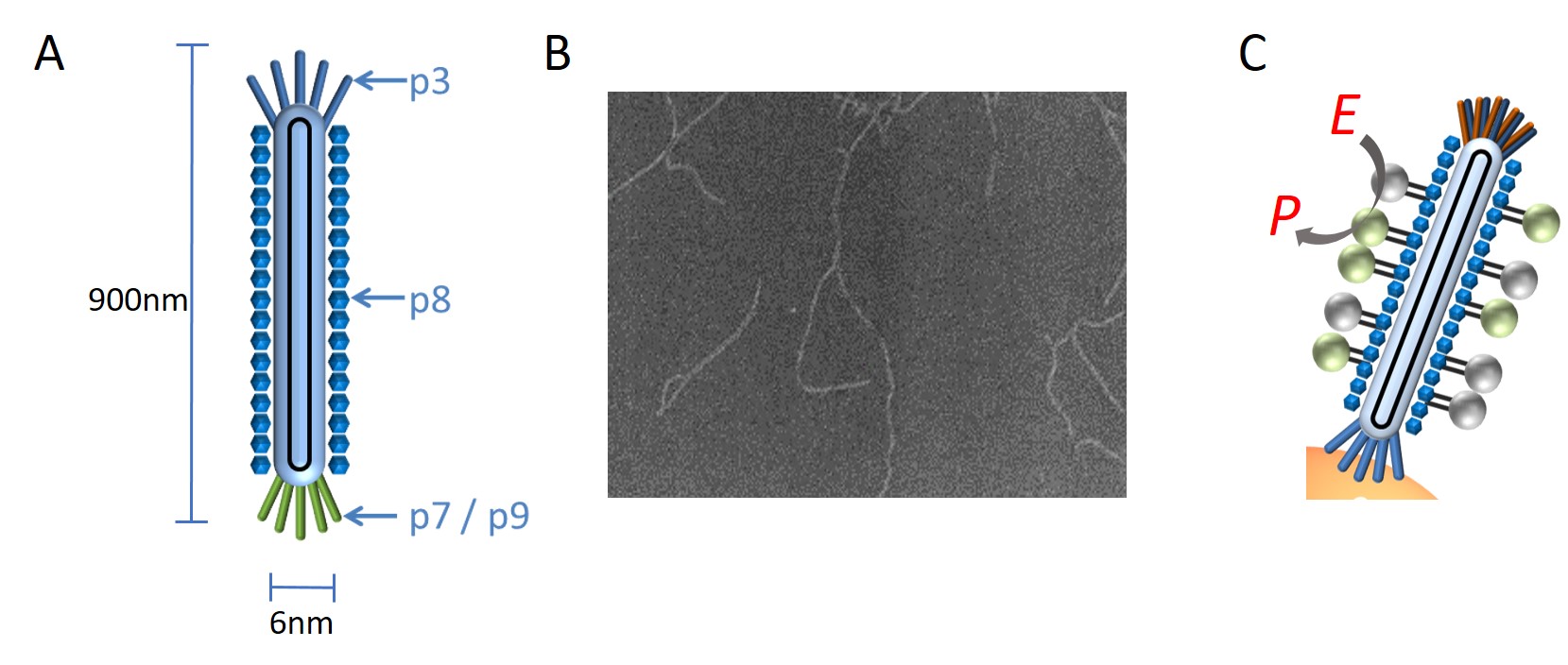
Figure: A) Schematic of M13 bacteriophage, B) SEM image of phages and C) hybrid structure realized with a phage.
Genetically modified bacteriophages for self-assembly
Mariana Alarcon-Correa, Vincent M. Kadiri, Jan-Philipp Günther, Peer Fischer
Collaborators: Dirk Rothenstein and Joachim Bill (Univ. of Stuttgart)
Bacteriophages are nanofibers that can be coupled to various carriers. In contrast to biological fibers, such as cellulose fibers which do not present many chemical groups for functionalization, the coat proteins of phages can be genetically engineered to permit the precise anchoring of proteins. This allows us to turn the phages into engineered self-assembled structures to which enzymes are coupled, including multi-enzyme systems. In this collaborative research project, which is funded by the Volkswagen Foundation, we build unique chemically-active hybrid structures with which we study their influence on fluid flow as well as enzyme cascades. We utilize the self-assembling processes for the integration of molecular components (enzymes) into functional bio-hybrid systems on phages as well as phage superstructures. Our approach is naturally biocompatible and therefore suggests a number of applications.
